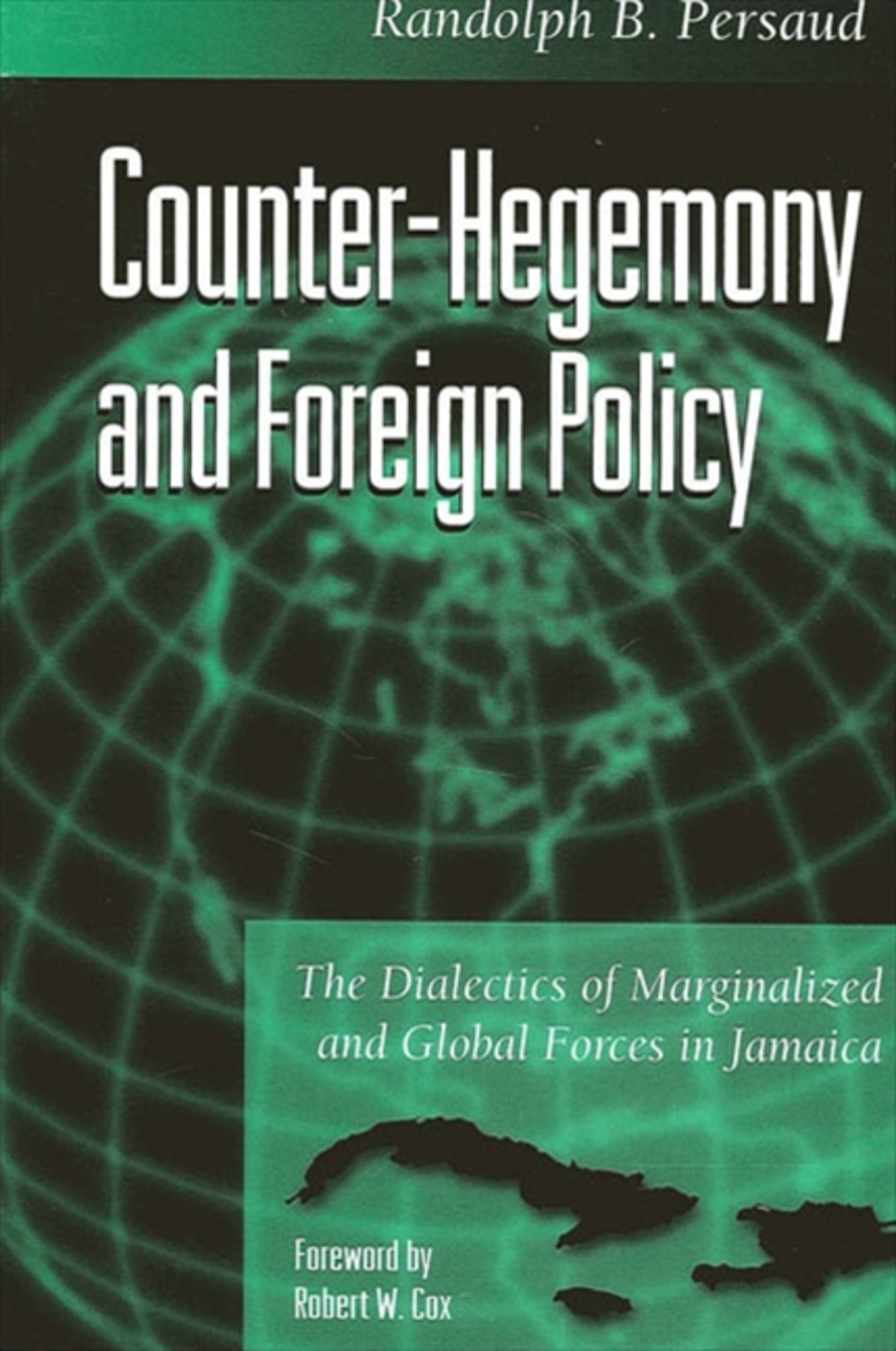We're sorry. An error has occurred
Please cancel or retry.
Counter-Hegemony and Foreign Policy

Some error occured while loading the Quick View. Please close the Quick View and try reloading the page.
Couldn't load pickup availability
- Format:
-
29 March 2001

Argues that marginalized states and peoples are capable of initiating their own foreign policy agendas.
It is not uncommon for scholars and policy makers to assume that small and dependent states must follow the lead of great or middle powers. But is this always the case? Drawing on the increasingly influential Gramscian approach to international relations, this book shows the ways in which marginalized social forces in Jamaica were mobilized against the hegemonic practices emanating from the global political economy. Persaud emphasizes the counter-hegemonic cultural activities of these forces, as well as the attempt of the Jamaican government to form a global "trade union of the poor."


"An interesting and provocative argument that local-level counter-hegemonic movements can shape national foreign policy and ultimately challenge global hegemonic structures." — Beverley Mullings, Syracuse University
"The theoretical sophistication of the book is impressive. This is one of the few attempts to link political and social dynamics at the local level with the unfolding of international political forces." — Pedro A. Caban, author of Constructing a Colonial People: Puerto Rico and the United States, 1898–1932
Foreword
Preface
Abbreviations
1. Introduction: The New Historical Materialism
Why Jamaica 1962-1980?
Historicism and the New Historical Materialism
The Organization of the Study
2. Approaches to Third World Foreign Policy
The Will to Classify
Groping for Categories
The Small/Weak State School
"Small" or "Weak" State
Power and Capability
Core Generalizations
Situation Role Analaysis
The Dependence/Compliance-Dependency Approach
3. A Social Forces Approach to Foreign Policy
Historical Structure as a Framework
Hegemony
Passive Revolution
The Concept of Forms of State
The Concept of Social Force
Counter-Hegemony and Hegemony
World Order Pressures
The Argument: A First Cut
4. Ideology, Culture, and National Interest
The National Interest versus Ideology
Hegemony, Counter-Hegemony, and World Order
Implications for Foreign Policy Analysis
5. The Making of Modern Jamaica and the Emergence of Exceptionalism
Social Forces in the Struggle Over Hegemony
Plantation Economy and Society: The Making of the Longue Duree
Postwar Transformations
The Consequences of Rapid Industrialization
The Modern Social Structure
The Hegemonic Bloc and the Ideology of Exceptionalism on the Eve of the 1970s
Exceptionalism: The Ideology of the Hegemonic Bloc
6. Counter-Hegemonic Forces
The Poor in the Making of History
The Rastafarians
Cultural Nationalism and Anti-Imperialism
A Society of Deep Cleavages
7. Facilitating Passive Revolution
The JLP's "Exceptionalist" Foreign Policy
The JLP's Version of Jamaica's Uniqueness
Multilateral Policy
A Fractured Hegemony and PNP Recuperation
8. From "Exceptionalism" to Democratic Socialism
A Requiem for Exceptionalism
The 1972 General Elections
A Democratic Socialist Foreign Policy
The Multilateral Strategy
Bilateralism
9. Promise and Defeat: Hegemony as Structual Power
The 1976 Election and the Realignment of Social Forces
The Economy: From Decline to Crisis
Bilateral Policies
The Opposition Groups
10. Onwards with Critical Theory
Counter-Hegemony in Theory and Practice
Some New Directions
Notes
References
SUNY series in Global Politics
Index



